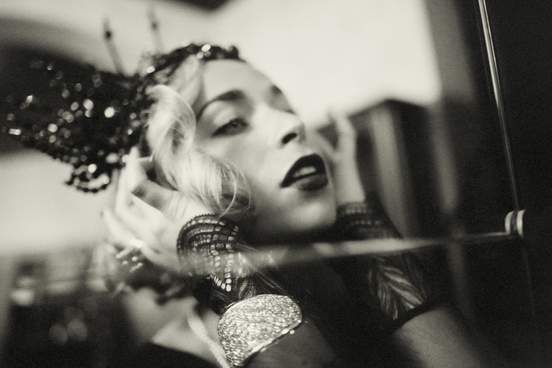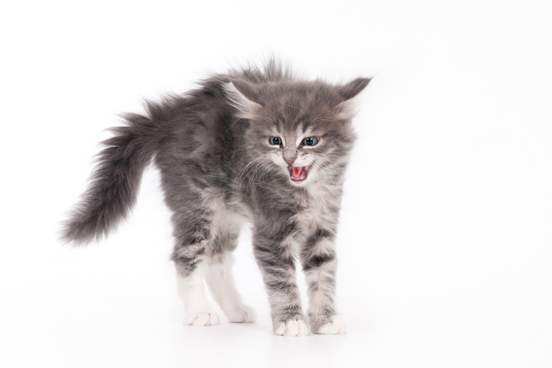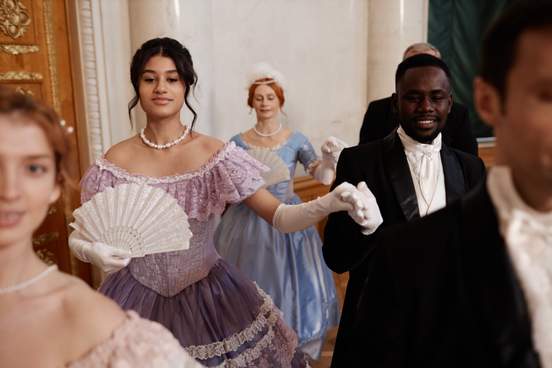
Look What You Made Us Do ... Again
Don’t worry, there’s no bad blood if you assumed dictionary editors listen chiefly to Brahms; but we are enchanted with pop, too, so much so that sometimes it’s hard to shake it off even during office hours! It’s been more than a fortnight—a year and a half, to be exact—since we last traversed the verses of Taylor Swift songs to shed some light on some positively bejeweled vocab words that are so high school SAT-prep-worthy in her lyrics. So with a new Taylor Swift album dropping, we thought we’d renew our Swiftie karma by focusing on some words from the last one, 2024’s The Tortured Poets Department, which die-hard fans will know all too well.

Aesthetic
Song: “Fortnight”
Lyric: “… nobody noticed my new aesthetic”
Definition: a particular taste for or approach to what is pleasing to the senses and especially sight
About the Word:
Aesthetic is a word that has risen in recent years to become one of our top lookups. There’s a lot to unpack with this word, starting with the use of ae in its spelling; this letter combination turns up in words that came from Latin, but can be pronounced in different ways—think of Caesar and vitae (reggae doesn’t come from Latin, but is another prominent word spelled this way). The noun aesthetic is sometimes used in the plural when identifying a field of study or the visual qualities of something, but in the sense employed by Taylor Swift in her song “Fortnight,” it is often singular. Aesthetic is also used as an adjective with a variety of meanings, including “artistic,” “pleasing in appearance,” and “appreciative of, responsive to, or zealous about the beautiful.”

Down Bad
Song: “Down Bad”
Lyric: “Now I’m down bad crying at the gym”
Definition: feeling or marked by strong and usually unrequited feelings of attraction, desire, or infatuation
About the Word:
Down bad is a relatively recent addition to our dictionary, though evidence exists of its use goes back to the early 1980s. Broadly, down bad describes someone who is in a bad state or condition—which can be for a lot of specific reasons, whether they are depressed or despondent, badly ill or injured, or heartbroken over unrequited love.

Galaxy
Song: “Peter”
Lyric: “We both did the best we could do underneath the same moon / In different galaxies”
Definition: any of the very large groups of stars and associated matter that are found throughout the universe
About the Word:
Many words over the centuries have traveled strange routes into English given their origins. Galaxy, for example, took the milky way. The word comes from the Late Latin galaxias, which in turn was borrowed from Greek galaxías. The -ias of galaxías is a noun suffix used especially of natural phenomena. The galax part of the word is from Greek gála, meaning “milk.”

Soliloquy
Song: “But Daddy I Love Him”
Lyric: “Sanctimoniously performing soliloquies I’ll never see”
Definition: a poem, discourse, or utterance of a character in a drama that has the form of a monologue or gives the illusion of being a series of unspoken reflections
About the Word:
Soliloquy shares some similarities with monologue, but there are some important differences between the two words. Soliloquy (from the Latin solus “alone” and loqui “to speak”) at its most basic level refers to the act of talking to oneself, and more specifically the solo utterance of an actor in a drama. It tends to be used of formal or literary expressions, such as Hamlet’s soliloquies. Monologue (from Greek monos “alone” and legein “to speak”) may also refer to a dramatic scene in which an actor soliloquizes, but it has other meanings as well. To a stand-up comedian, monologue refers to a comic routine. To a bored listener, it signifies a long speech uttered by someone who has too much to say.

Precocious
Songs: “But Daddy I Love Him,” “I Hate It Here”
Lyric 1: “Growing up precocious sometimes means not growing up at all”
Lyric 2: “I read about it in a book when I was a precocious child”
Definition: exhibiting mature qualities at an unusually early age
About the Word:
In the mid-1600s, English speakers used precocious especially to describe plants that produced blossoms before their leaves came out. Within decades, however, precocious was also being used to describe humans who developed skills or talents sooner than others typically did. Fun fact: Taylor Swift has also sung the word precocious in her live cover of “Bette Davis Eyes,” a song written by Donna Weiss and Jackie DeShannon that was made popular by Kim Carnes.

Silhouette
Song: “I Can Do It With a Broken Heart”
Lyric: “The lights refract sequined stars off her silhouette every night”
Definition: the outline of a body viewed as circumscribing a mass
About the Word:
In addition to referring to an “outline” as in the Taylor Swift lyric above, silhouette also refers, in its oldest meaning, to a likeness cut from dark material and mounted on a light ground or one sketched in outline and solidly colored in. Before the age of the photograph, the silhouette, either cut from paper or painted, was the most affordable portrait that could be made. The art enjoyed a golden age in the second half of the 18th and first half of the 19th centuries, when many people collected them. Although silhouettes were well-loved, the man for whom they were named was not: Étienne de Silhouette was France’s finance minister under Louis XV and was notorious for both his frugality and his hobby of making cut-paper shadow portraits.

Torrid
Song: “The Manuscript”
Lyric: “Now and then she rereads the manuscript / Of the entire torrid affair”
Definition: ardent or passionate
About the Word: Hot, steamy, sultry: English is full of words that do double-duty in describing thirst traps both literal (as in the tropics) and figurative (as in, well, thirst traps). Torrid comes from the Latin verb torrēre, which means “to burn” or “to parch” and is an ancestor of our word toast. (Despite its dry implications, torrēre is also an ancestor of torrent, as in “a torrent of rain.”) Torrid first appeared in English in the 16th century and was originally used to describe something burned or scorched by exposure to the sun, but it has since taken on an extended meaning similar to the “sexy” sense of hot: “showing fiery passion,” as in “torrid love letters” or “a torrid affair.”

Hackles
Song: “The Albatross”
Lyric: “Jackals raised their hackles”
Definition: proneness to anger, temper
About the Word:
In its earliest uses in the 15th century, hackle referred to either the plumage along a bird’s neck or to a device used to comb out long fibers of flax, hemp, or jute. Things took a turn in the 19th century when English speakers extended the word’s plural use to both dogs and people. Like the bird’s feathers, the hairs on the back of a dog’s neck stand up when the animal is agitated. With humans, use of the word hackles is usually figurative. So, if you heckle someone, you’ll likely raise their hackles in the process, meaning you’ll make them angry or put them on the defensive.

Esoteric
Song: “The Black Dog”
Lyric: Were you making fun of me with some esoteric joke?
Definition: requiring or exhibiting knowledge that is restricted to a small group, difficult to understand
About the Word:
The opposite of esoteric is exoteric, which means “suitable to be imparted to the public.” According to one account, those who were deemed worthy to attend the Greek philosopher Aristotle’s learned discussions were known as his “esoterics,” his confidants, while those who merely attended his popular evening lectures were called his “exoterics.” Since material that is geared toward a target audience is often not as easily comprehensible to outside observers, esoteric acquired an extended meaning of “difficult to understand.”

Debutante
Song: “I Hate It Here”
Lyric: You see I was a debutante in another life
Definition: a young woman making her formal entrance into society
About the Word:
Debutante comes from the French débutante, which is the feminine of débutant (which English also borrowed, as debutant. So-called debutante balls, dating back to at least the 18th century, were originally intended as an avenue through which to present young women eligible for marriage to prospective high-society partners. Modern balls, however, have less focus on matrimony. Debutante traditions have varied over time and locales, but some are more or less universal. Almost all debutante balls are extremely exclusive, many of them invitation-only. Oftentimes invitations require recommendations from a current member of the hosting organization, usually a woman who was once a debutante herself.





